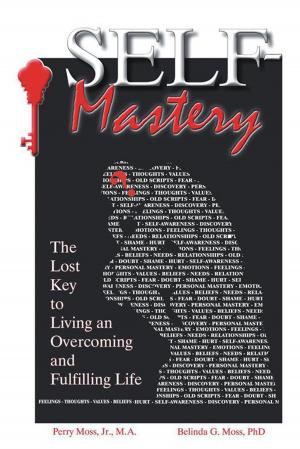The Bullying Phenomenon
Breaking the Cycle
Nonfiction, Reference & Language, Education & Teaching, Elementary, Counseling & Guidance, Special Education| Author: | Dwayne Ruffin Ed.D | ISBN: | 9781512773477 |
| Publisher: | WestBow Press | Publication: | February 15, 2017 |
| Imprint: | WestBow Press | Language: | English |
| Author: | Dwayne Ruffin Ed.D |
| ISBN: | 9781512773477 |
| Publisher: | WestBow Press |
| Publication: | February 15, 2017 |
| Imprint: | WestBow Press |
| Language: | English |
Student bullying exists as an egregious, insidious, and antisocial behavior that traumatizes millions of students each year. Bullying is a widespread problem that has its greatest impact and prevalence during middle school and high school years.
The effects of bullying are well documented and include negative impacts on student development and academic achievement. Bullying consequently causes psychological harm as well as a lack of normative social interactions and maladaptive outcomes for children who engage in bullying. As an effective intervention, the author developed the Bullying Resolution Model.
The Bullying Resolution Model is solution driven. The model components consist of five core-driving forces embedded within the bullying cycle, purposefully designed to achieve a resolution. Primarily, the bullying resolution model is dynamic in nature. The Bullying Resolution Model attribute is based on the premise of reaching a resolution by means of vigorous activity through acquiring social and emotional competency interaction skills.
The synergistic feature of the model guides the facilitator through the resolution process for maximum effectiveness. Consequently, the bullying model components can address multilevel conflicts ranging from minor inappropriateness to sever or even complex dilemmas. Giving much-needed support and interventions to the facilitator in confronting the apparent bully or bullies, monitor setbacks, and progress to resolution of the conflicted parties.
Student bullying exists as an egregious, insidious, and antisocial behavior that traumatizes millions of students each year. Bullying is a widespread problem that has its greatest impact and prevalence during middle school and high school years.
The effects of bullying are well documented and include negative impacts on student development and academic achievement. Bullying consequently causes psychological harm as well as a lack of normative social interactions and maladaptive outcomes for children who engage in bullying. As an effective intervention, the author developed the Bullying Resolution Model.
The Bullying Resolution Model is solution driven. The model components consist of five core-driving forces embedded within the bullying cycle, purposefully designed to achieve a resolution. Primarily, the bullying resolution model is dynamic in nature. The Bullying Resolution Model attribute is based on the premise of reaching a resolution by means of vigorous activity through acquiring social and emotional competency interaction skills.
The synergistic feature of the model guides the facilitator through the resolution process for maximum effectiveness. Consequently, the bullying model components can address multilevel conflicts ranging from minor inappropriateness to sever or even complex dilemmas. Giving much-needed support and interventions to the facilitator in confronting the apparent bully or bullies, monitor setbacks, and progress to resolution of the conflicted parties.















